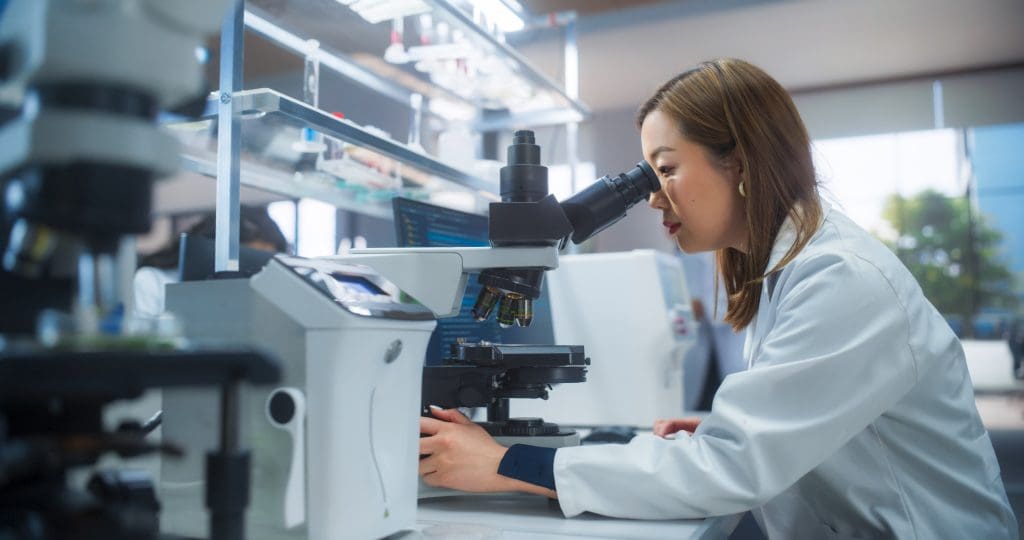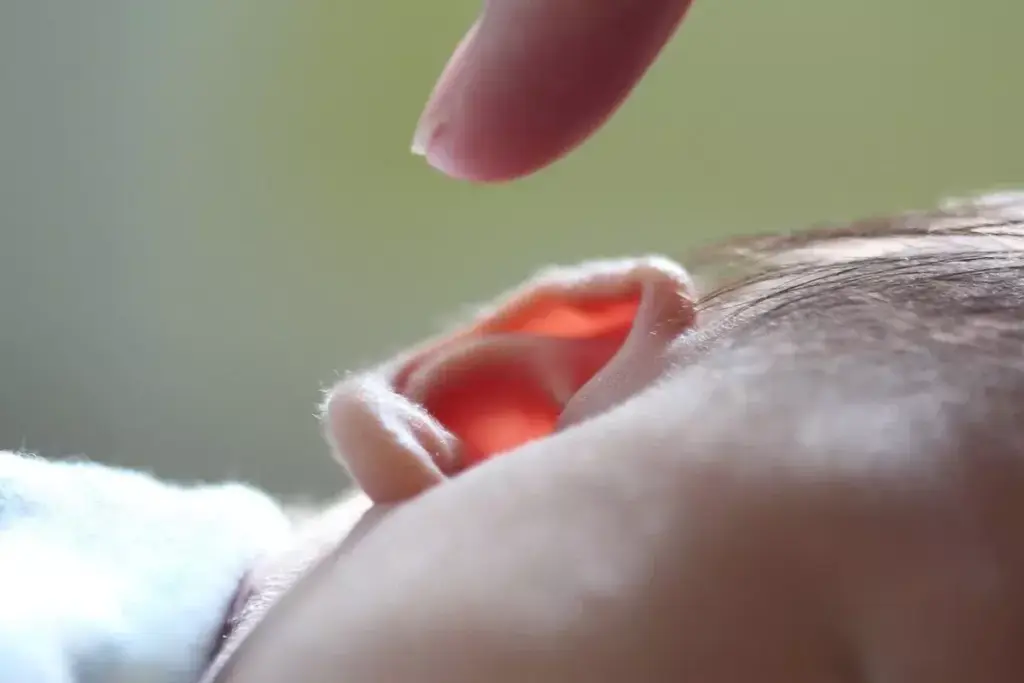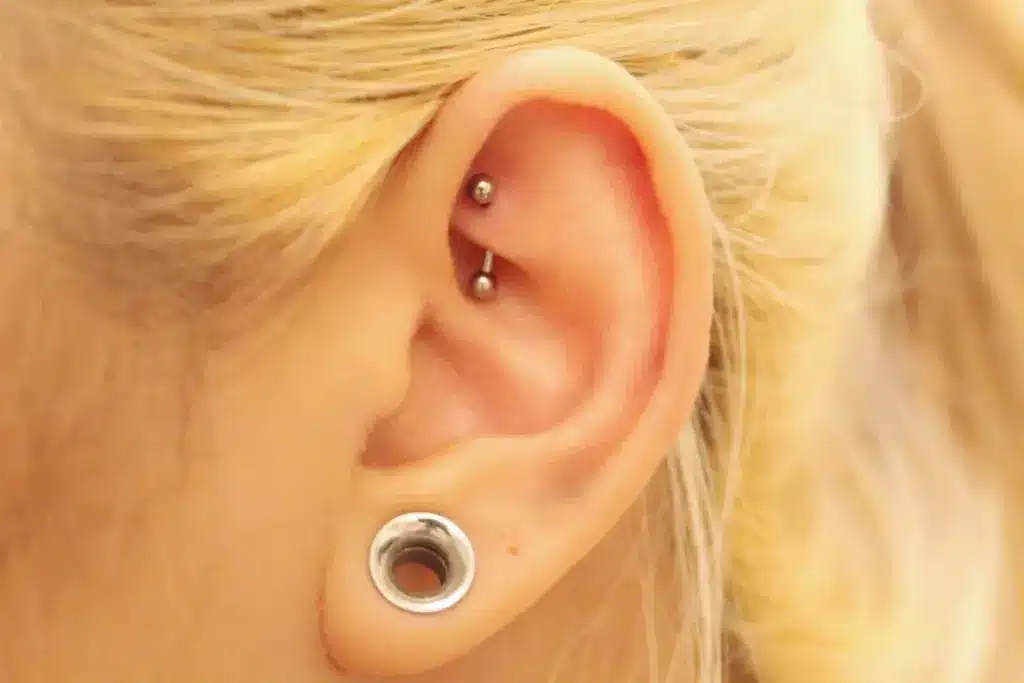Explore the surprising foods that help grow new stem cells and revitalize your body.
Stem Cell Food Supplement: What Foods Grow New Stem Cells?
Did you know some nutrients help grow new stem cells in your body? Stem cells are key for fixing and making new tissues. Eating a stem cell renewal diet full of important nutrients keeps them healthy.
What Foods Grow New Stem Cells
The idea of stem cell food supplements is becoming more popular. It’s thought to help keep these important cells healthy. Adding foods for stem cell growth to your meals might boost your body’s repair skills.
Key Takeaways
- Stem cell health is key for feeling good.
- Eating foods rich in nutrients helps grow stem cells.
- Some foods can help your body fix itself better.
- A stem cell renewal diet can make you feel more alive.
- Adding foods for stem cell growth can improve your health.
The Science Behind Stem Cells and Regeneration

Stem cells and regeneration are complex processes in our bodies. They help us repair and renew ourselves. Stem cells can turn into different types of cells, which is key for fixing tissues and growing new ones.
What Are Stem Cells and Their Function in the Body
Stem cells are special cells that can become many types of cells in our body. They act like an internal repair team. They keep dividing to replace other cells, as long as we’re alive.
When a stem cell splits, each new cell can stay a stem cell or become another type. This could be a muscle cell, a red blood cell, or a brain cell. Stem cells are vital for keeping our body healthy and helping it heal.
How Dietary Factors Influence Stem Cell Production
What we eat affects how well our stem cells work. Foods with vitamins, minerals, and antioxidants help our stem cells. These nutrients give stem cells what they need to function well.
Eating lots of fruits, veggies, whole grains, and lean proteins is good for stem cells. Foods with antioxidants also protect stem cells from damage. This helps them work better and helps our body heal.
What Foods Grow New Stem Cells?
Research shows that diet affects stem cell health. Certain foods can boost stem cell production. Eating a balanced diet with key nutrients helps the body repair itself.
Research-Backed Foods That Stimulate Stem Cell Production
Studies have found foods that help stem cells. These include:
- Berries: Berries like blueberries and strawberries are full of antioxidants. They support stem cell health.
- Leafy Greens: Spinach and kale are rich in vitamins and minerals. They help grow new stem cells.
- Fatty Fish: Salmon is full of omega-3 fatty acids. These acids are good for stem cells.
Key Nutrients That Support Stem Cell Growth
Some nutrients are key for stem cell growth. These are:
- Antioxidants: They protect stem cells from damage.
- Vitamin D: It’s vital for activating stem cells and keeping them healthy.
- Omega-3 Fatty Acids: They keep stem cell membranes healthy.
Eating these foods and nutrients can help your body make more stem cells. This can improve your health and well-being.
Antioxidant-Rich Foods for Stem Cell Protection
Antioxidant-rich foods are key to protecting stem cells from oxidative stress. This helps keep them healthy. Stem cells are very sensitive to their surroundings. Oxidative stress can harm their function and survival.
Berries and Their Stem Cell Benefits
Berries like blueberries, strawberries, and raspberries are full of antioxidants. These include anthocyanins and vitamin C. They help fight off free radicals, protecting stem cells from damage.
Eating different types of berries can boost stem cell health. It also supports your overall well-being.
Colorful Vegetables That Support Stem Cell Health
Vegetables like bell peppers, carrots, and leafy greens are also antioxidant-rich. They contain beta-carotene and lutein. These nutrients help protect stem cells from oxidative stress.
Adding a variety of colorful vegetables to your diet gives your stem cells a range of antioxidants. This is good for their health.
Antioxidant Mechanisms in Stem Cell Preservation
Antioxidants protect stem cells in several ways. They can directly fight free radicals and reduce oxidative stress. They also help with signaling pathways that keep stem cells alive and working well.
Knowing how antioxidants work shows why eating foods rich in them is important. It helps keep stem cells healthy.
Eating foods like berries and colorful vegetables helps protect your stem cells. This is a great way to support their health and your overall well-being.
Omega-3 Fatty Acids and Stem Cell Regeneration
Omega-3 fatty acids are key for stem cell regeneration. This process is essential for our health. These fats are anti-inflammatory and good for cells.
Fish and Marine Sources of Omega-3s
Fatty fish like salmon, sardines, and mackerel are full of omega-3s. They have EPA and DHA, which are great for stem cells.
Other sea sources, like krill oil and algal oil, also have lots of omega-3s. Krill oil, for example, has omega-3s in a form that might be easier for our bodies to use.
Plant-Based Omega-3 Sources for Stem Cell Support
If you eat plants, flaxseeds, chia seeds, and walnuts are good for you. They have ALA, which can turn into EPA and DHA. Even though it’s not perfect, it’s better than nothing.
Algal oil is a plant-based option that has DHA. It’s great for vegetarians and vegans who want to help their stem cells.
How Fatty Acids Influence Stem Cell Membrane Function
Omega-3s go into stem cell membranes, making them work better. This helps stem cells stay strong and regrow well.
The anti-inflammatory effects of omega-3s also protect stem cells. This helps them keep regenerating.
Polyphenol-Rich Foods That Boost Stem Cell Production
Certain foods, like green tea and dark chocolate, are good for stem cells. They have antioxidants called polyphenols. These help protect and activate stem cells.
Green Tea and Its Stem Cell Enhancing Properties
Green tea is full of catechins, which are good for stem cells. The catechin EGCG helps stem cells grow and change.
EGCG in green tea protects stem cells from damage. It reduces stress and inflammation, helping stem cells to regenerate.
Dark Chocolate and Other Polyphenol Sources
Dark chocolate is also rich in polyphenols, like flavonoids. These are good for the heart and brain. Flavonoids in dark chocolate help stem cells by improving blood flow and reducing inflammation.
Other foods like berries and colorful veggies are also good. They have many polyphenols that help stem cells stay healthy.
Polyphenols’ Molecular Pathways in Stem Cell Activation
Polyphenols turn on stem cells through different ways. They change genes that help stem cells grow and change. They also affect important signaling pathways.
For example, polyphenols can start the PI3K/Akt signaling pathway. This is key for stem cell survival and growth. Knowing how polyphenols work helps us see their role in stem cell health.
Stem Cell Renewal Diet: Essential Vitamins
Diet plays a big role in stem cell renewal, thanks to vitamins like D, B, and C. These vitamins help activate and grow stem cells, keeping them healthy.
Vitamin D and Stem Cell Activation
Vitamin D is key for turning on stem cells. Studies show it has receptors in many stem cells, showing its role in controlling them. Not having enough vitamin D can slow down stem cell work.
Foods rich in vitamin D include fatty fish, fortified dairy, and some mushrooms. It’s important to get enough vitamin D to keep stem cells working well.
B Vitamins and Their Impact on Stem Cell Health
B vitamins are vital for our body’s functions, including stem cell health. They help make energy, fix DNA, and keep cells healthy. All these are important for stem cells to work right.
Folate (B9) and Vitamin B12 are key for stem cells. They help fix DNA and keep cells healthy. Not having enough can hurt stem cell work and reduce healing power.
Vitamin C and Stem Cell Proliferation
Vitamin C is a strong antioxidant that helps stem cells grow. It keeps cells safe from damage and helps them renew and change. It’s also good for making collagen, which helps tissues heal and grow.
Foods high in vitamin C, like citrus fruits, berries, and leafy greens, are great for a stem cell diet. Vitamin C’s role in making collagen also helps with tissue health and growth.
In short, vitamins D, B, and C are key for a stem cell renewal diet. Eating foods rich in these vitamins or taking supplements can help keep stem cells healthy and active. This supports overall health and ability to heal.
Minerals Essential for Stem Cell Function
Some minerals are key for boosting stem cell production and regeneration. Zinc and magnesium are vital for stem cell health. They support many cellular processes.
Zinc and Magnesium for Stem Cell Support
Zinc is a trace mineral that helps keep stem cells healthy and active. It’s important for protein making and cell division. Magnesium helps with energy and supports stem cell health.
Key roles of zinc and magnesium in stem cell support:
- Enhancing stem cell growth and activity
- Supporting important enzyme reactions
- Helping with cell processes that affect stem cell health
Trace Minerals That Enhance Stem Cell Activity
Trace minerals like selenium and iron are also key for stem cell health. Selenium fights off damage from oxidative stress. Iron is needed for making hemoglobin and energy.
The importance of trace minerals in stem cell health:
- Selenium protects stem cells from damage
- Iron helps with energy and hemoglobin
Optimal Dietary Sources of Stem Cell-Supporting Minerals
Eating foods rich in minerals is important for stem cell health. Oysters, beef, and chicken are good for zinc. Dark leafy greens, nuts, and seeds are good for magnesium.
Dietary sources of essential minerals:
- Zinc: oysters, beef, chicken
- Magnesium: dark leafy greens, nuts, seeds
- Selenium: Brazil nuts, fish, turkey
- Iron: red meat, spinach, fortified cereals
Natural Ways to Increase Stem Cells Through Traditional Foods
Traditional foods have a special power to boost stem cell growth. For ages, different cultures have eaten certain foods to stay healthy. These foods help increase stem cells naturally.
Adaptogenic Herbs and Their Effects on Stem Cells
Adaptogenic herbs have been used for ages to keep people healthy. New studies show they might help stem cells too. Ashwagandha, for example, can lower stress and inflammation, helping stem cells work better.
Ginseng is another herb being studied for stem cell benefits. Ginsenosides in ginseng might help stem cells grow and change. More research is needed, but it’s promising.
Ancient Superfoods with Modern Stem Cell Benefits
Modern times have made ancient superfoods popular for their health benefits. These foods have been eaten for centuries and are now studied for stem cell health.
- Turmeric: It has curcumin, which fights inflammation and protects stem cells.
- Goji berries: They’re full of antioxidants and may protect stem cells from harm.
- Maca: A Peruvian plant that may balance hormones and support stem cells.
These superfoods are a natural way to help stem cells when eaten as part of a balanced diet.
Cultural Dietary Practices That Support Stem Cell Health
Many cultures have diets that help stem cells. The Okinawan diet, for example, is full of antioxidants and is linked to long life. The Mediterranean diet, with lots of fruits, veggies, and healthy fats, also supports health and stem cells.
“The traditional Japanese diet, which includes a high intake of seaweed and green tea, has been associated with numerous health benefits, including potentially supporting stem cell health.”
Cultural diets show us how to naturally support stem cell health with traditional foods.
Specialized Stem Cell Food Supplements
Whole foods are key, but some supplements can help too. As we learn more about stem cells, more supplements claim to support them.
Commercial Supplements Designed for Stem Cell Support
Now, many supplements aim to boost stem cell growth. They often include cycloastragenol and astragaloside IV from the Astragalus plant. Some studies say these might help stem cells work better.
Other supplements mix vitamins, minerals, and antioxidants. They aim to help stem cells function well. When picking a supplement, choose ones tested well and certified by trusted groups.
Evaluating the Efficacy of Stem Cell Supplements
It’s hard to know if stem cell supplements really work. This is because there’s a lot of variation in what they contain. And research is just starting.
Look for supplements with ingredients that your body can use well. Some might have several ingredients that work together to help stem cells.
Integrating Supplements with Whole Food Approaches
Supplements should add to, not replace, a diet full of whole foods. A mix of healthy foods and supplements can give your body what it needs for stem cells to grow.
Living a healthy lifestyle and using supplements wisely can boost your stem cell health. Always talk to a doctor before starting new supplements, even if you’re healthy.
Fasting and Caloric Restriction for Stem Cell Activation
Fasting and eating less have become key for turning on stem cells. This helps our bodies heal and feel better. Scientists are really interested in this because it might make us healthier.
Intermittent Fasting’s Impact on Stem Cell Regeneration
Intermittent fasting is good for our stem cells. It works by switching between eating and not eating. This can help fix and grow tissues better.
The good things about fasting for stem cells are:
- More active stem cells
- Cleaner cells through autophagy
- Better metabolism
How Caloric Restriction Promotes Stem Cell Health
Eating less but not too little is good for stem cells. It can make us live longer and feel better overall.
Caloric restriction helps stem cells in a few ways:
- Less damage from free radicals
- Cells can handle stress better
- More new stem cells
Practical Fasting Protocols for Stem Cell Optimization
There are different ways to fast for better stem cells. Some include:
- 16:8 method, 16 hours fasting, 8 hours eating
- 5:2 diet, eat very little for 2 days a week
- Alternate-day fasting, eat normally one day, less the next
Always talk to a doctor before fasting, if you have health issues or don’t get enough nutrients.
Foods That Support Stem Cell Production Throughout Life Stages
The foods we eat are key to supporting stem cell production at all ages. As we get older, our dietary needs change. So do the foods that help our stem cells stay healthy.
Dietary Needs for Stem Cell Health in Youth vs. Aging
In youth, eating foods rich in essential nutrients helps stem cells grow fast. Berries and leafy greens are great because they have antioxidants. These protect stem cells from harm.
As we age, our stem cells don’t regenerate as well. Nutritional strategies become very important. Foods like salmon and green tea, which are rich in omega-3s and polyphenols, help keep stem cells working.
Nutritional Strategies During Recovery and Healing
When we’re recovering, our bodies need more nutrients to make new stem cells. Adequate protein intake is vital for building new cells.
Foods high in vitamin C, like citrus fruits and broccoli, also help. They support collagen and connective tissue, aiding in healing.
Preventative Nutrition for Long-term Stem Cell Function
Preventative nutrition is essential for keeping stem cells healthy over time. Eating foods rich in antioxidants and fiber helps fight oxidative stress and inflammation. Both can harm stem cells.
Eating a variety of colorful vegetables is great for stem cell health. Staying hydrated and avoiding processed foods also help keep stem cells healthy.
Creating a Stem Cell Nourishing Diet Plan
Creating a diet plan for stem cell health needs careful thought. It’s important to add foods that help stem cells. A good diet plan boosts stem cell function and improves health.
Daily Meal Strategies for Optimal Stem Cell Support
To support stem cell health, eat a variety of foods. Include foods high in antioxidants, omega-3s, and polyphenols. Also, make sure to get enough vitamins and minerals.
Key daily meal strategies include:
- Eat omega-3s at breakfast
- Have colorful veggies with every meal
- Add green tea and dark chocolate to your diet
- Get enough vitamins D and C, and minerals like zinc and magnesium
Sample Meal Plans for Stem Cell Regeneration
Sample meal plans help you follow a stem cell diet. Here’s a daily meal plan example:
Breakfast: Overnight oats with berries, walnuts, and green tea
Lunch: Grilled salmon with quinoa and steamed veggies
Dinner: Stir-fry with dark greens, bell peppers, and plant-based omega-3s
Recipes That Combine Multiple Stem Cell-Boosting Foods
Mixing stem cell foods in one recipe boosts their benefits. Here’s a recipe example:
“Stem Cell Boosting Smoothie: Blend frozen berries, spinach, green tea extract, chia seeds, and almond milk for a nutritious breakfast or snack.”
By using these meal strategies, plans, and recipes, you can make a diet plan. This plan supports stem cell health and overall well-being.
Lifestyle Factors That Complement Foods for Stem Cell Growth
To boost stem cell production, we need a complete plan. This plan includes what we eat and other lifestyle choices. Eating right is key, but so are staying active, getting enough sleep, managing stress, and avoiding harmful environments.
Exercise and Its Synergistic Effect with Diet
Exercise is great for stem cells and overall health. It makes our body release growth factors that help stem cells work better. When we exercise and eat right, the benefits for our stem cells can grow even more.
Types of Exercise Beneficial for Stem Cells:
- Aerobic exercises like running or cycling
- Resistance training for muscle strength
- Flexibility and balance exercises like yoga
Sleep Quality and Stress Management for Stem Cell Health
Good sleep and stress control are vital for stem cell health. Bad sleep and too much stress can harm stem cells by messing with hormones and causing more damage.
Strategies for Improving Sleep and Managing Stress:
- Establishing a consistent sleep schedule
- Engaging in relaxation techniques like meditation or deep breathing
- Limiting exposure to screens before bedtime
Environmental Factors That Affect Dietary Impact on Stem Cells
Our surroundings can change how well our diet helps our stem cells. Pollution, toxins, and UV rays can all affect stem cell health.
Minimizing Negative Environmental Impacts:
- Avoiding areas with high levels of air pollution
- Using protective measures against UV radiation
- Reducing exposure to household chemicals and toxins
By eating right and living a healthy lifestyle, we can help our stem cells thrive. This includes exercising regularly, sleeping well, managing stress, and staying away from harmful environments.
Potential Risks and Considerations
Exploring foods that grow new stem cells is exciting. But, we must also talk about the risks and things to consider. It’s key to know the possible dangers and how to stay safe.
When to Consult Healthcare Professionals
Before changing your diet or adding new supplements, talk to a doctor. This is very important if you have health problems. Some foods or supplements might not be good for you, or they could make your health worse.
For example, people with cancer should be careful. They should talk to their doctor before trying anything new.
- Discuss your plans with your healthcare provider if you have any underlying health conditions.
- Be cautious with supplements that may interact with your medications.
- Monitor your body’s response to new foods or supplements and report any adverse effects to your healthcare provider.
Contraindications and Precautions
Some foods and supplements are good for stem cells, but there are things to watch out for. Too much of some antioxidants can be bad. Also, eating too much of certain nutrients can harm you.
- Be aware of the recommended daily intake of specific nutrients to avoid excessive consumption.
- Choose whole foods over supplements whenever possible to minimize the risk of adverse effects.
- Consider your individual nutritional needs and health status when selecting foods or supplements.
Balancing Stem Cell Stimulation with Overall Health
It’s important to think about your overall health when trying to boost stem cells. Eating foods that help stem cells is good, but you also need to eat well for your body. Exercise, sleep, and managing stress are also key.
Key Considerations:
- Ensure you’re getting a balanced mix of nutrients to support overall health.
- Don’t over-rely on a single food or supplement for stem cell support.
- Maintain a healthy lifestyle, including regular exercise and adequate sleep.
Knowing the risks and taking a balanced approach can help you enjoy the benefits of stem cell support. This way, you can stay healthy and avoid any problems.
Current Research on Stem Cell Regeneration Through Diet
Research is quickly advancing to understand how diet affects stem cell regeneration. Scientists are learning more about how nutrition impacts these cells. This knowledge is key to improving our health.
Promising Scientific Studies
Recent studies have made big discoveries about diet and stem cells. They found that some nutrients help stem cells grow and work better. This could lead to better healing and growth of tissues.
A study in the Nature journal found that antioxidants in food protect stem cells. This helps them keep their ability to regenerate.
Nutritional interventions are being studied for their effects on stem cells. For example, eating fewer calories can help stem cells in different parts of the body. This shows that what we eat really matters for our stem cells.
Future Directions in Nutritional Stem Cell Research
Future research will dive deeper into how diet affects stem cells. Knowing these details will help create better diets for stem cell health. Also, using omics technologies will give us a clearer picture of diet’s impact on stem cells.
Research on personalized nutrition is also exciting. It aims to give dietary advice based on your genes and stem cell health. This could help improve your body’s ability to heal and grow.
Emerging Food Technologies for Stem Cell Support
New food technologies are being developed to help stem cells. These include nutraceuticals and functional foods that boost stem cell regeneration. For example, foods with special nutrients or compounds are being made to support stem cell function.
This shows a growing interest in how diet affects stem cell health. As research continues, we’ll see more innovative foods and drinks that support our bodies.
Conclusion: Optimizing Your Diet for Stem Cell Health
Improving your diet for stem cell health involves many steps. It includes eating foods rich in nutrients, living a healthy lifestyle, and sometimes taking supplements. Foods like berries, colorful veggies, omega-3s, and green tea help boost stem cell growth.
A good diet plan should also include vitamins and minerals like vitamin D and zinc. These help stem cells work better. Plus, regular exercise, good sleep, and managing stress are key for stem cell health.
By focusing on a healthy diet and lifestyle, you can help your stem cells thrive. As scientists learn more about stem cells, it’s clear that eating right and staying active are vital. They help keep your stem cells in top shape all your life.
FAQ
What are stem cells and how do they impact overall health?
Stem cells can turn into different cell types. They help fix tissues, grow new ones, and keep us healthy.
How do dietary factors influence stem cell production?
What we eat affects stem cell production. Nutrients, antioxidants, and eating less can help.
What foods stimulate stem cell production?
Foods like berries, leafy greens, fatty fish, and nuts boost stem cells. They’re full of good stuff.
How do antioxidant-rich foods protect stem cells?
Foods high in antioxidants, like berries, protect stem cells. They fight off damage and keep stem cells healthy.
What is the role of omega-3 fatty acids in stem cell regeneration?
Omega-3s, found in fish and plants, help stem cells grow. They make cell membranes work better and fight inflammation.
How do polyphenol-rich foods boost stem cell production?
Foods like green tea and dark chocolate help stem cells grow. They start important processes that help stem cells work.
What vitamins are essential for stem cell renewal?
Vitamins D, B, and C are key for stem cell renewal. They help stem cells grow and change into different types.
Which minerals are critical for stem cell function?
Zinc, magnesium, and trace minerals are important for stem cells. They help stem cells stay healthy and work right.
Can fasting and caloric restriction impact stem cell health?
Yes, fasting and eating less can help stem cells. They can make stem cells grow and work better, improving health.
How can I create a complete stem cell nourishing diet plan?
To make a good diet plan, eat a variety of foods. Include fruits, veggies, whole grains, lean proteins, and healthy fats. Think about your own needs and health.
What lifestyle factors complement foods for stem cell growth?
Lifestyle choices like exercise, good sleep, managing stress, and a clean environment help stem cells. They support overall health.
Are there any possible risks or considerations related to stem cell health?
Yes, there are risks. Make sure to balance eating right with overall health. Know what not to do and talk to doctors when needed.
What is the current state of research on stem cell regeneration through diet?
Research on diet and stem cells is exciting. Studies look at how different foods and nutrients affect stem cells. New food technologies also show promise for supporting stem cells.










